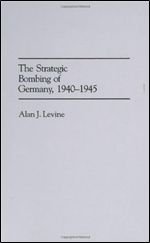The thirteenth century was largely a time of transition in the history of Judaism, as the centers of Jewish thought moved from the Islamic world to Christian Europe. Dozens of translations of philosophical writings from Arabic to Hebrew, along with Hebrew encyclopedias, summaries, glossaries and other reference works, laid the foundations for the emergence of a tradition of philosophy in Hebrew. Although the thirteenth century produced some creative and original thinkers, it was not till the fourteenth that the hard work of the translators produced a mature philosophical culture. This is represented most fully by Gersonides, generally considered the most original Jewish philosopher in the later Middle Ages.
Among the many subjects that preoccupied Gersonides during his productive career are the soul, the intellect, and the possibility of conjunction with the agent intellect. He discusses these in his commentary on Averroes’ De anima, in his commentaries on the Bible, and most systematically in Book 1 of his theological summa, The Wars of the Lord. The latter will be our focus here.
Gersonides’ discussion of intellect and immortality in the Wars is framed by Aristotle’s De anima, especially the notoriously ambiguous text at 3:5. There Aristotle introduced the notion of a passive (or potential or material) intellect, which can ‘‘become all things,’’ and an active intellect, which causes or ‘‘makes’’ all things; the latter is ‘‘separate, impassible, unmixed... it alone is immortal and eternal.’’ Gersonides does not engage Aristotle directly. For him the study of Aristotle means the study of the commentators (Alexander, Themistius, al-FarabI, Averroes), who developed different and incompatible interpretations of Aristotle and inconsistent theories of intellect and intellection. Gersonides’ aim in the Wars is to explain clearly the different views, show their weaknesses, and develop his own position out of and in contradistinction to theirs. His opinion, he claims, will emerge as superior in terms of philosophical argumentation. It will also help support the traditional doctrine of individual immortality - at least in some degree.
The discussion of the different views, leading to his own original hypothesis, can be summarized as follows:
According to Alexander of Aphrodisias (as Gersonides construes his position), the material or potential or human intellect is a disposition in the soul which comes to be with the body; it is the capacity to know, and nothing more. It knows through a process ofabstraction: the senses provide material forms to the imagination, and the imagination intelligible forms to the intellect, which can see them with the help of an agent or active intellect - an external celestial incorporeal cause of thinking, which shines light (as it were) on a potentially intelligible substance, in the same way that the sun shines light on a potentially sensible substance. When the intellect is thinking an intelligible, it is actually thinking; when it is thinking an intelligible substance completely separate from matter, it can become one with this separate intelligible and survive eternally through it. The sum total of its thoughts is called acquired intellect; when these acquired thoughts are separate intelligibles, they survive, having achieved some sort of union with the eternal thoughts the mind is thinking.
Themistius, according to Gersonides, defends a completely contrary - largely Platonizing - reading of Aristotle, a view which Averroes then develops in detail (as Gersonides understands him). According to this view, the material or potential or human intellect is not a disposition that comes to be with the body, but rather a separate substance, which is an incorporeal one, and eternal by nature. It itself possesses universal knowledge; in contrast, it can know individual particular things only through the individual body or soul. As with Alexander, Themistius (as developed by Averroes) considers the agent or active intellect an external cosmic intelligence, but it is identical with the material intellect. In other words, the potential or material or human intellect is an individual instantiation of the universal active intellect. Although the material intellect can acquire particular knowledge with the help of sense and imagination, this knowledge does not perdure. Only the material intellect, with the death of the body, when it returns, as it were, to its original state in the active intellect, survives the destruction of the body.
In Gersonides’ opinion all of these views are deficient in some way, and through his criticism of them he develops his own view, which for him answers all the problems of the others. To sum up his criticism, in Gersonides’ opinion Alexander can account for particular knowledge - through abstraction - but seems incapable of explaining universal knowledge; for if the material intellect comes to be with the body, it is also subject to destruction (following a basic principle of Aristotelian science), yet universal knowledge, in Alexander’s acquired intellect, is eternal. Themistius, for his part, cannot account for particular knowledge, for the only way a separate intellect can know individuals is by mixing with the body, but if it mixes with the body, it is no longer separate. That the material and active intellects are one in essence, different in accident, is given the lengthiest discussion by Gersonides. He focuses on problems of individuation: if the active intellect is really one, then the material intellect in all humans should be one, but there is a manifest difference between individuals; and if the material intellect, on the other hand, is many, then one would conclude that a single thing is both one and many at the same time.
What then is Gersonides’ own view? For him, the material intellect is a disposition or capacity created in the imagination. It is created, but can become eternal - for the principle that nothing that comes to be can become eternal is false (he argues this in Book 5). Here, for the most part, he agrees with Alexander, and rejects the view of Themistius and Averroes. With the active intellect, however, Gersonides begins to break new ground. He agrees that the active intellect is a separate external incorporeal cosmic intelligence, which is a cause of existence and knowledge, but the way he defines it is different. For Gersonides, this active intellect is the cause of all existence in the lower world, insofar as it possesses all forms that prime matter is capable of receiving, and in their myriad relations. And, for the same reason, it is the cause of thought, since in it are all the possible intelligible forms, in all their myriad relations - it provides the grounds, as it were, for all thinking. In this sense the active intellect is - to use Gersonides’ terminology - the order, justice, pattern, or ‘‘nomos’’ of the sublunar world.
One question remains: If the active intellect is the pattern of the world, can an individual human intellect know it completely and conjoin with it, and what would conjunction mean? For Gersonides, all knowledge comes through experience of the world; all knowledge is scientific or inductive; it is always the result of learning. In his opinion, there is no innate knowledge or illumination from above; even first principles are learned. Therefore any sort of complete cognition or union with the active intellect is impossible; human beings, through rational study, cannot possibly acquire complete understanding of all forms in the world in all their complex relations; they cannot possibly see the world from the perspective of the active intellect. Yet precisely because the active intellect is the pattern of the world, and the world is a reflection of it, the knowledge gained through empirical study provides some share in or taste of this universal pattern.
It is this combination of ideas, perhaps born of Gersonides’ own inclination toward the empirical that led him to a remarkable conclusion: that immortality consists in the little knowledge one acquires through the rational scientific empirical investigation of the world, and this little knowledge is different - and unique - for each individual intellect. In this way does Gersonides - the staunch Aristotelian, the sturdy empiricist - defend the doctrine of an individual immortality.




 World History
World History









